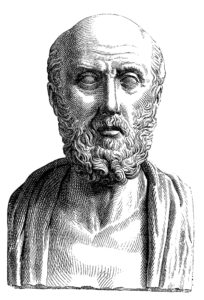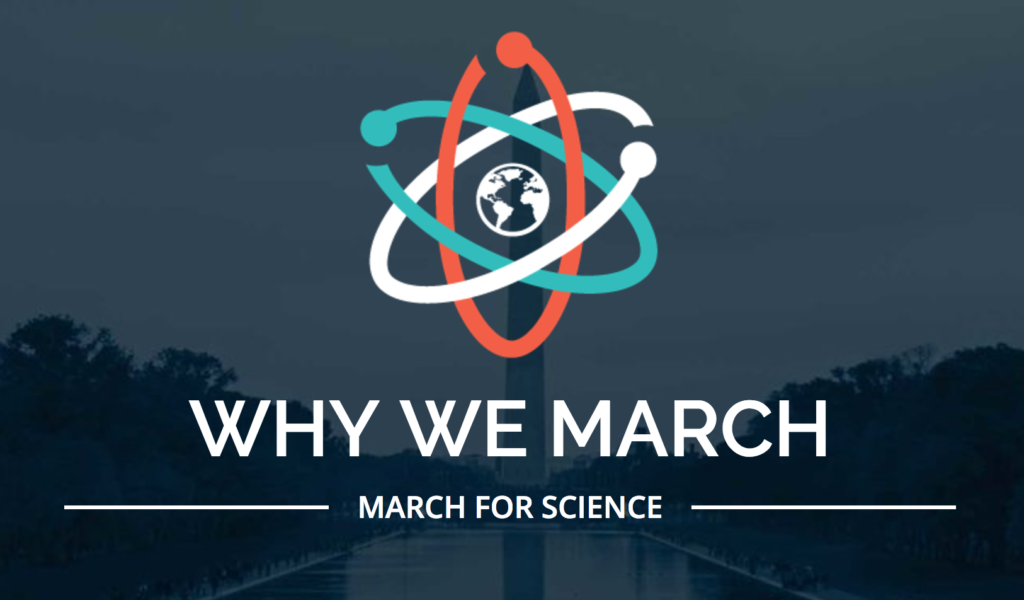Professor Phil Bland is a ARC Laureate Fellow at Curtin University and lead scientist of the Desert Fireball Network. Him and his team use cutting edge ground-based camera systems to identifying and recovering meteorites with the goal of calculating the orbits of recovered meteorites to their source regions and parent bodies in the Solar System. He delivered the following speech at the March for Science event in Perth, Australia on 22 April 2017.
In the next 10 minutes, I’m going to talk about the history of science, as well as philosophy, and religion. We’ll touch on medicine, physics, astronomy, and climate change, and nod to Hippocrates, Aristotle, Kepler, Newton, and Einstein, finishing up with Ricky Gervais. Why talk about history at a science march? Because history shows us that the light can go out. Dark ages happen.
I’m here today to argue for science as a fundamental good. Something that has brought immeasurable benefits to humanity, not just in obvious areas like medicine and technology. Science raises our eyes from the daily grind to a deep appreciation of the universe around us and our place in it. And it has dramatically changed our culture. The way we think. It’s not enough to be an elder – a voice of authority – and say that something is true. You have to prove it. We recognise a need for empirical evidence, although we forget that for much of recorded history it wasn’t even a concept.
Science is a way of connecting minds, not in exchanging opinions in 140 characters, but in a collaborative intellectual exploration of the universe. Science is hard for humans. The scientific worldview doesn’t come naturally to us. It demands the best of us. I’m here because history tells us that a scientific worldview need not necessarily prevail. For me, the danger isn’t a lack of funding. It’s that we forget how to think. We retreat to a time when there was no such thing as a fact – just opinion and persuasion. There are reasons for optimism. Thanks to a particularly wonderful scientific theory, we know that any nation that abandons a scientific worldview, and massively cuts research funding, would be rapidly outcompeted in the global economic ecosystem. Natural selection IS a fact. But rationality doesn’t always win the day. We do need to be vigilant. Aristotle would have been astonished to learn that his works would go unread for 600 years. He would probably be even more saddened to learn that for 500 years after that his words would be taken as gospel. Simply because – unlike the time when he wrote them, a time of healthy debate – they were rediscovered at a point in history when authority went unquestioned. And for 500 years he became the ultimate authority. Dark ages do happen.
Let me read a quote for you. This is from Hippocrates, writing about epilepsy in the early 4th Century BC:
“I do not believe that the so-called ‘Sacred Disease’ is any more divine or sacred than any other diseases. It has its own specific nature and cause; but [although] men through their inexperience and wonder, at its peculiar symptoms, have believed it to be of divine origin… it has the same nature as other diseases and a similar cause. It is also no less curable than other diseases unless by a long lapse of time it is so ingrained that it is more powerful than the drugs that are applied. Like other diseases it is hereditary… The brain is the cause of the condition…”
This is relevant to me because I have epilepsy. Why did it take over 2 thousand years to get a better description of it? For much of the time in between, it would be assumed that I was possessed by Satan or his demons. Why did that worldview prevail over Greek culture and science? The worldview of Thales, Hippocrates, Eratosthenes and Aristotle? It happened because the world got unlucky. A power struggle between adherents of a new religion and the desire for stability in a weakening Roman Empire resulted in a new dominant force in the world where conformity of belief, authority, and dogma was prized over rationality, debate, and empirical evidence. The world can get unlucky again.
This is from Augustine, writing in the early 5th Century AD:
“There is another form of temptation, even more fraught with danger. This is the disease of curiosity… It is this which drives us to try and discover the secrets of nature, those secrets which are beyond our understanding, which can avail us nothing and which man should not wish to learn.”
Of course, the result was – along with one or two other downsides – that the diagnosis and treatment of epilepsy lagged somewhat…
Why is science different? In most cases, new innovations and technologies confirm and extend what we knew before, and open a few new avenues. We can make informed predictions because science works. In a few cases, it completely overturns past thinking. It’s own previous dogma if you will. But it does it in a completely different way than in other areas of human activity. For hundreds of years, the scientific worldview was built on the work of Isaac Newton. It wasn’t often stated like this, but the Newtonian Universe had an assumption at its heart, that every observer, whatever their frame of reference, would see the same thing. Einstein thought about that for a long while. Thought about the implications of having a constant speed of light. Realised that a Newtonian Universe couldn’t work. And completely rewrote the rule book. In 1905 he published his theory of special relativity. By 1911 almost all theoretical physicists had accepted it. Hundreds of years of thinking, regarding our conception of the entire universe, was transformed, overhauled. The intellectual efforts of lifetimes – hundreds of careers, of powerful people – called into question. Were they angry about it? Did they feel that their life’s work had been wasted? They did not. Think about that for a moment. Translate that into any other human activity and you’ll recognise how weird it is. No blood was spilt. No wars were fought. In 5 years they completely changed the way they thought about the universe, and it was handled in conference sessions. There was no trauma. No one was being told what to believe. Relativity prevailed because it worked. There was no trauma because there were no losers. They weren’t angry. They didn’t feel their lives had been wasted. Because they knew that had been part of a common project. All those engaged were scientists, which means that you sign up to a set of rules that take you beyond human opinion, belief, preference, and convenience, and agree to be led by evidence, even when it makes you uncomfortable. Scientists aren’t perfect. Humans aren’t perfect. But one of the ways that science is unusual is that it has a built-in self-correcting mechanism… Empirical evidence wins the day.
It doesn’t have to though. The talk of a post-truth world. ‘Alternative facts’. The non-debate around climate science. This is the danger. Because there was a pre-truth world. A world where the concept of empirical evidence did not exist. Where there was no word for fact – just opinion, experience, and persuasion. That world is closer than you might think. Kepler, working in the early 1600s, did not have a word for ‘fact’. He understood that he needed it as a concept, but the language had not yet caught up with him. And even Kepler deferred to the ancients, describing his work as a supplement to Aristotle.
There are belief components in science. One of those is for non-specialists to defer to a scientific consensus. We don’t defer in the same way that folks did 500 years ago, to ancient authority. We recognise that scientific consensus evolves, but that it should be our guide, simply because – even for a scientist – it’s impossible to be a specialist in more than one field. This is a curiosity of the climate change non-debate. It overturns that agreement. There is virtual unanimity amongst climate scientists that humans are modifying the Earth’s climate. The degree of consensus is far beyond anything – on any process – in my own field. So why do non-specialists feel confident in having a contrary opinion? This doesn’t make a lot of sense to me. There is nothing special about climate science here. Those individuals should feel just as confident about holding a contrary opinion to every other area of science. Of course if they did then many aspects of their lives would become unworkable…
I’m going to end with a quote from Ricky Gervais. Ricky Gervais was recently on The Late Show with Stephen Colbert. Ricky, an atheist, and Colbert, a catholic who often asks fellow catholic guests to have a catholic faceoff about knowledge of catholic doctrine. Gervais and Colbert got into a wonderful, off the cuff debate about the existence of god, and the nature of science. Rejecting the idea that science is a belief system just like any other belief system, here’s what Ricky said:
“If we take any fiction, or any holy book, and destroyed it, in a thousand years time it wouldn’t come back just as it was.” We couldn’t recover it. “Whereas if we took every science book, and every fact, and destroyed them all, in a 1000 years they’d all be back because all of the same tests would give the same results.”
Of course, his point requires that the scientific process, method, and worldview isn’t also destroyed. And that’s the danger. Because science doesn’t come naturally to humans. We’re not great at critical thinking. We have to learn it. We don’t like to accept truths that conflict with our preconceptions, or are inconvenient. We don’t like to have our minds changed. Science challenges us to be better than we are. And that’s why we need to defend it.
![]() This work is licensed under a Creative Commons Attribution-NonCommercial-ShareAlike 4.0 International License.
This work is licensed under a Creative Commons Attribution-NonCommercial-ShareAlike 4.0 International License.




